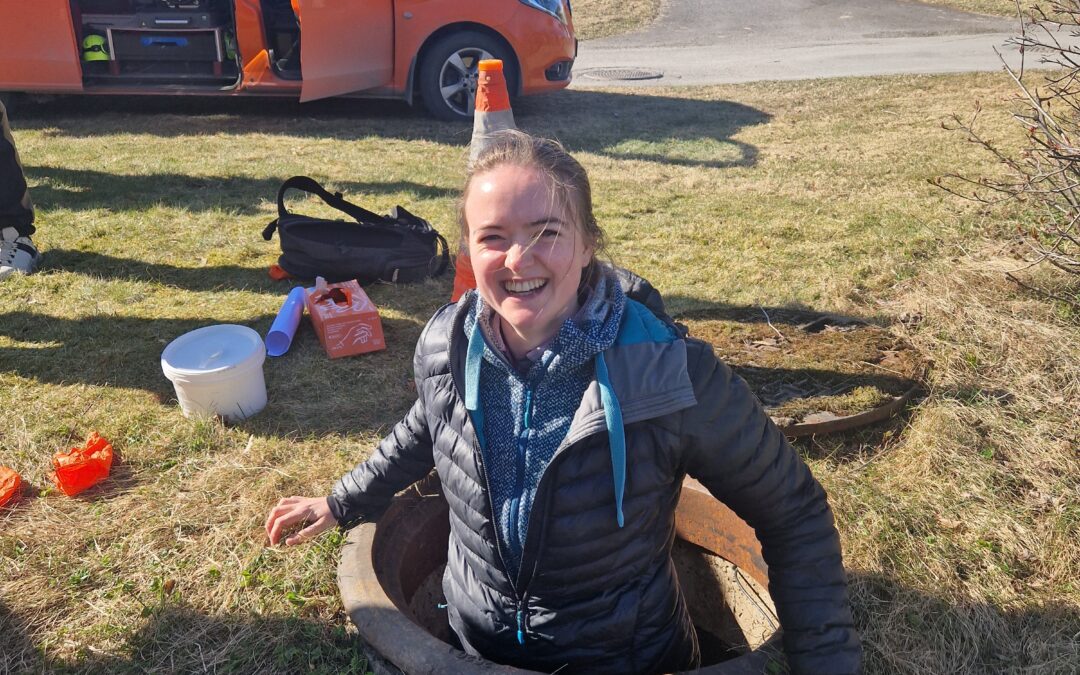Overlooking Norway’s largest freshwater lake, the TransformAr partnership convened for the final project Consortium Meeting, to review progress and discuss next steps for the projects’ final six months. The trip provided a fantastic opportunity to review the solutions implemented by the Municipality of Gjøvik, who plan to replicate the sustainable urban drainage solutions developed by the Lappeenranta demonstrator in Finland. Ada Myers and Emily Widdecombe toured the municipalities’ elaborate wastewater treatment works and went underground to view monitoring equipment used to assess water level and quality in Gjøvik’s combined sewage overflow systems. As lake Mjøsa is used both for drinking water abstraction and wastewater discharge, it is essential that the municipality secure high water quality through their wastewater treatment processes.
Over the past 4 years TransformAr has delivered 11 Nature-based Solutions across the Camel and Axe catchments, each designed to mitigate nutrient pollution and improve water quality. Working to deliver a viable nutrient credit scheme in Cornwall, WRT have collaborated with Cornwall Council to overcome multiple, complex challenges associated with this new nature market. WRT have also co-developed climate adaptation plans with key communities in the Camel catchment, as well as supported Natural England to integrate Systems Thinking approaches into catchment management strategies. The project also provided a valuable opportunity to assess the viability of private-sector finance for nature-based solutions in Devon and Cornwall. The final six months will see close monitoring of all five nature-based solutions, and further engagement with the private sector to accelerate the availability of private finance for nature-based solutions in the Southwest.
by Emily Widdecombe

